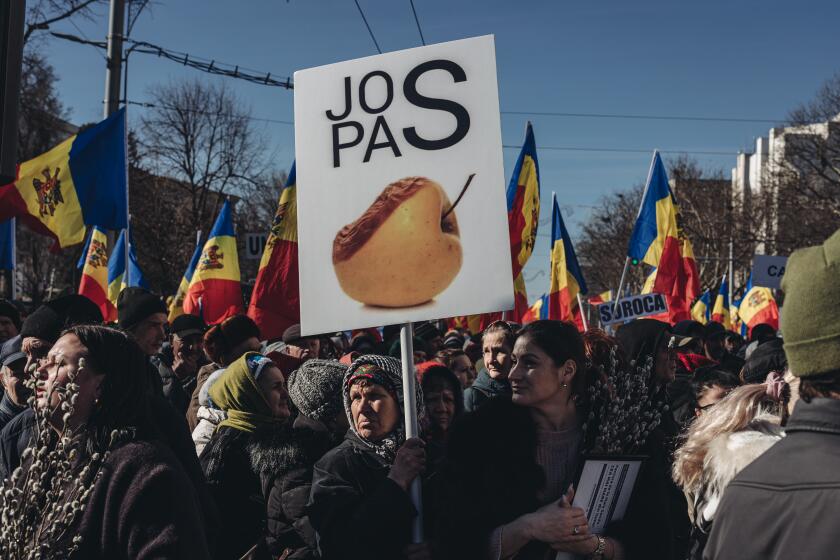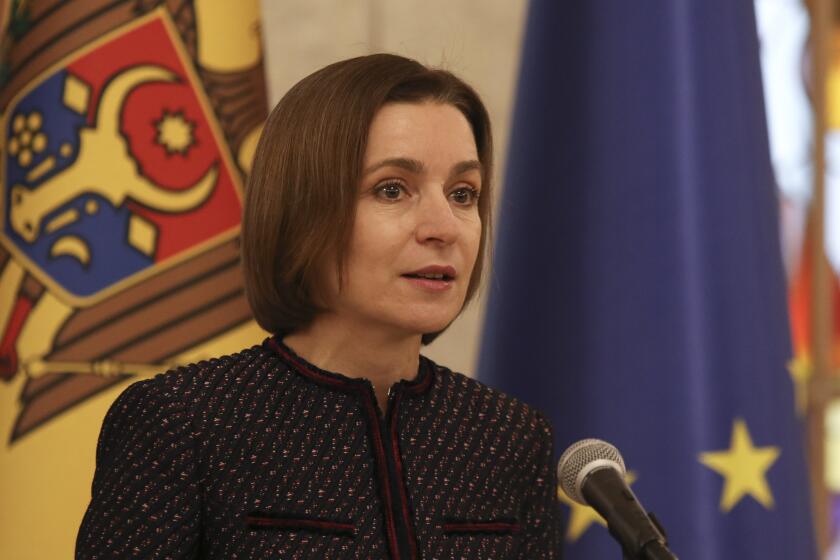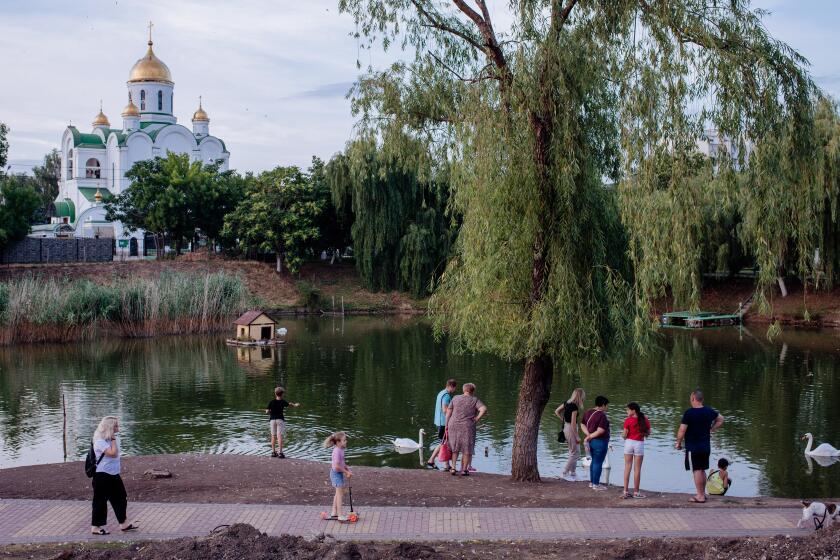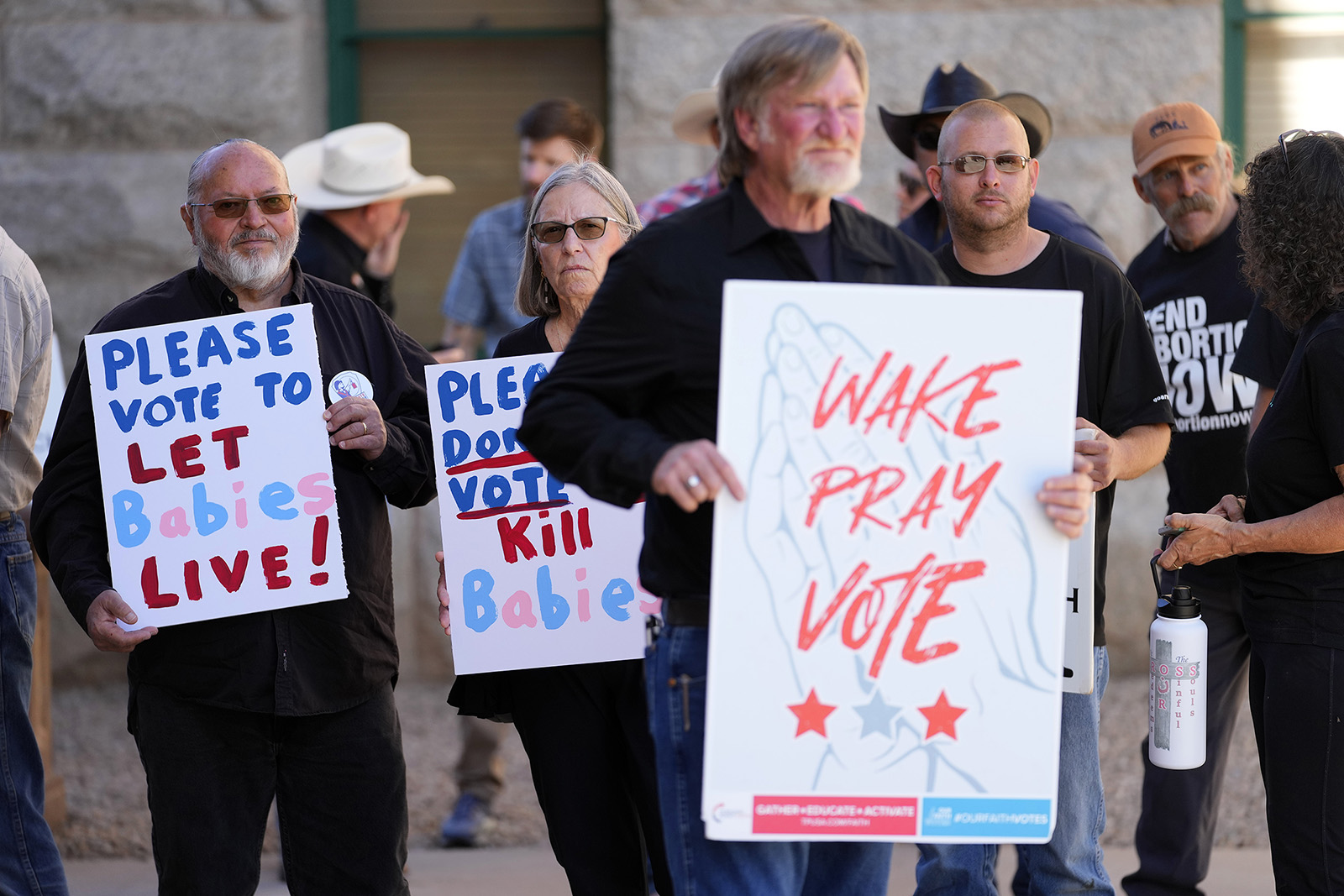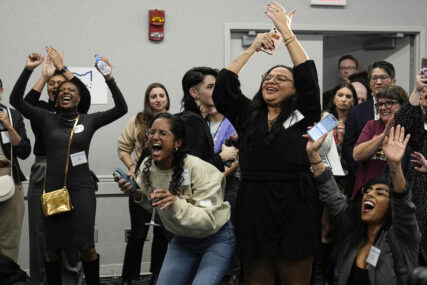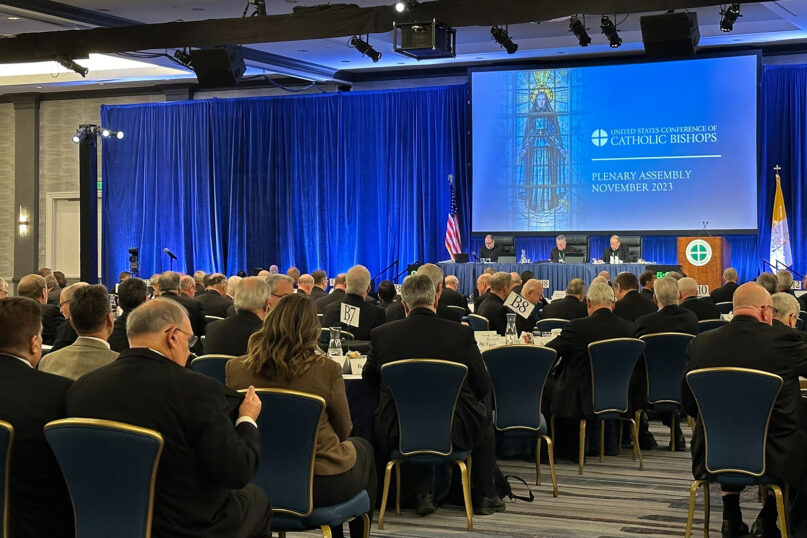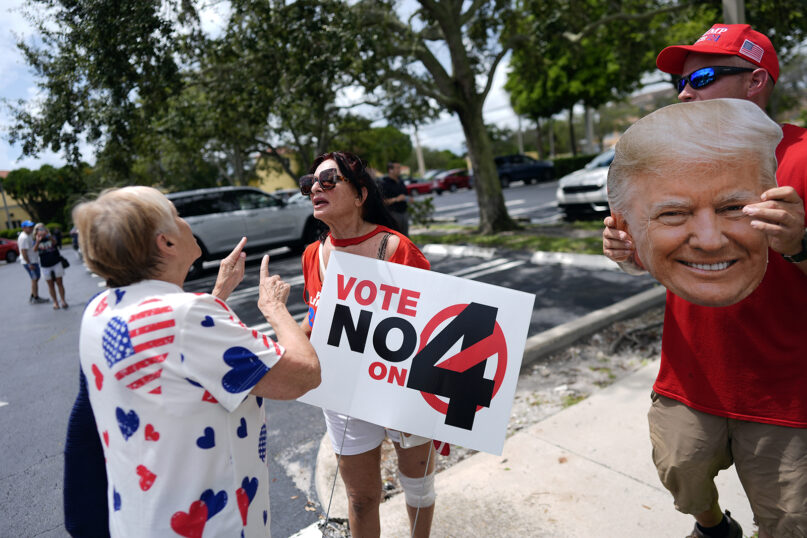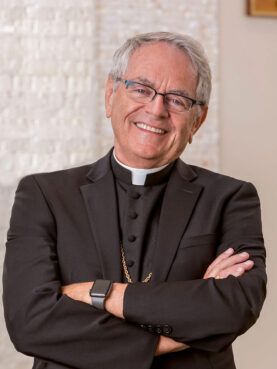Putin seeks economic unity to challenge Western hegemony at BRICS summit
Two dozen world leaders, including Xi Jinping, Narendra Modi, and Recep Tayyip Erdogan are gathering in Kazan, Russia, for a BRICS summit on Tuesday – aimed at challenging Western dominance. The event is Russia's largest diplomatic gathering since its invasion of Ukraine, showcasing Moscow's defiance of Western isolation. The summit runs from October 22 to 24.
Issued on: 22/10/2024

Russian President Vladimir Putin remotely attends a G20 leaders meeting in Moscow on November 22, 2023 © Mikhail KLIMENTYEV, AFP
Two dozen world leaders are gathering in Russia on Tuesday for the opening of a summit of the BRICS group, an alliance of emerging economies that the Kremlin hopes will challenge Western "hegemony".
The summit is the biggest such meeting in Russia since it ordered troops into Ukraine and comes as Russian President Vladimir Putin seeks to demonstrate that Western attempts to isolate Moscow over the two-and-a-half-year offensive have failed.
Chinese leader Xi Jinping, Indian Prime Minister Narendra Modi and Turkish President Recep Tayyip Erdogan -- all key partners for Russia -- are scheduled to join the summit, hosted in the city of Kazan from October 22 to 24.
Moscow has made expanding the BRICS group -- an acronym for core members Brazil, Russia, India, China and South Africa -- a pillar of its foreign policy.
The main issues on the agenda include Putin's idea for a BRICS-led payment system to rival SWIFT, an international financial network that Russian banks were cut off from in 2022, as well as the escalating conflict in the Middle East.
The Kremlin has touted the gathering as a diplomatic triumph that will help it build an alliance to challenge Western "hegemony".
'Brick by brick'
The United States has dismissed the idea that BRICS could become a "geopolitical rival" but has expressed concern about Moscow flexing its diplomatic muscle as the Ukraine conflict rages.
Moscow has been steadily advancing on the battlefield in eastern Ukraine this year while strengthening its ties with China, Iran and North Korea -- three of Washington's adversaries.
By gathering the BRICS group in Kazan, the Kremlin "aims to show that not only is Russia not isolated, it has partners and allies," Moscow-based political analyst Konstantin Kalachev told AFP.
The International Criminal Court (ICC) issued arrest warrants for Putin in 2023 over the illegal deportation of children from Ukraine, and the Russian leader abandoned plans to attend the previous summit in ICC member South Africa.
This time round, the Kremlin wants to show an "alternative to Western pressure and that the multipolar world is a reality," Kalachev said, referring to Moscow's efforts to shift power away from the West to other regions.
The Kremlin has said it wants global affairs to be guided by international law, "not on rules that are set by individual states, namely the United States."
"We believe that BRICS is a prototype of multipolarity, a structure uniting the Southern and Eastern hemispheres on the principles of sovereignty and respect for each other," Kremlin aide Yuri Ushakov said.
"What BRICS is doing is gradually -- brick by brick -- building a bridge to a more democratic and just world order," he added.
Security
In Kazan, Putin is set to meet individually with Modi and Xi, as well as the leaders of South Africa and Egypt on Tuesday, followed by separate talks with Erdogan and Iran's President Masoud Pezeshkian on Wednesday.
UN Secretary General Antonio Guterres is also undertaking his first trip to Russia since April 2022 to attend the summit. He will sit down with Putin on Thursday, according to a programme shared by Ushakov.
Ahead of the summit, AFP journalists in the city reported heightened security measures and a visible police presence.
The surrounding Tatarstan region, which is some 1,000 kilometres (620 miles) from the border with Ukraine, has previously been hit by long-range Ukrainian drone attacks.
Movement around the city centre is being limited, residents advised to stay home, and university students moved out of dormitories, local media reported.
Emboldened
The West believes Russia is using the BRICS group to expand its influence and promote its own narratives about the Ukraine conflict.
Ukrainian President Volodymyr Zelensky has warned other countries could feel emboldened if Putin wins on the battlefield in Ukraine.
Starting with four members when it was established in 2009, BRICS has since expanded to include several other emerging nations such as South Africa, Egypt and Iran.
But the group is also rife with internal divisions, including between key members India and China.
Turkey, a NATO member with complex ties to both Moscow and the West, announced in early September that it also wanted to join the bloc.
Brazilian President Luiz Inacio Lula da Silva cancelled his planned trip to the summit at the last minute after suffering a head injury that caused a minor brain hemorrhage.
(AFP)
Two dozen world leaders are gathering in Russia on Tuesday for the opening of a summit of the BRICS group, an alliance of emerging economies that the Kremlin hopes will challenge Western "hegemony".
The summit is the biggest such meeting in Russia since it ordered troops into Ukraine and comes as Russian President Vladimir Putin seeks to demonstrate that Western attempts to isolate Moscow over the two-and-a-half-year offensive have failed.
Chinese leader Xi Jinping, Indian Prime Minister Narendra Modi and Turkish President Recep Tayyip Erdogan -- all key partners for Russia -- are scheduled to join the summit, hosted in the city of Kazan from October 22 to 24.
Moscow has made expanding the BRICS group -- an acronym for core members Brazil, Russia, India, China and South Africa -- a pillar of its foreign policy.
The main issues on the agenda include Putin's idea for a BRICS-led payment system to rival SWIFT, an international financial network that Russian banks were cut off from in 2022, as well as the escalating conflict in the Middle East.
The Kremlin has touted the gathering as a diplomatic triumph that will help it build an alliance to challenge Western "hegemony".
'Brick by brick'
The United States has dismissed the idea that BRICS could become a "geopolitical rival" but has expressed concern about Moscow flexing its diplomatic muscle as the Ukraine conflict rages.
Moscow has been steadily advancing on the battlefield in eastern Ukraine this year while strengthening its ties with China, Iran and North Korea -- three of Washington's adversaries.
By gathering the BRICS group in Kazan, the Kremlin "aims to show that not only is Russia not isolated, it has partners and allies," Moscow-based political analyst Konstantin Kalachev told AFP.
The International Criminal Court (ICC) issued arrest warrants for Putin in 2023 over the illegal deportation of children from Ukraine, and the Russian leader abandoned plans to attend the previous summit in ICC member South Africa.
This time round, the Kremlin wants to show an "alternative to Western pressure and that the multipolar world is a reality," Kalachev said, referring to Moscow's efforts to shift power away from the West to other regions.
The Kremlin has said it wants global affairs to be guided by international law, "not on rules that are set by individual states, namely the United States."
"We believe that BRICS is a prototype of multipolarity, a structure uniting the Southern and Eastern hemispheres on the principles of sovereignty and respect for each other," Kremlin aide Yuri Ushakov said.
"What BRICS is doing is gradually -- brick by brick -- building a bridge to a more democratic and just world order," he added.
Security
In Kazan, Putin is set to meet individually with Modi and Xi, as well as the leaders of South Africa and Egypt on Tuesday, followed by separate talks with Erdogan and Iran's President Masoud Pezeshkian on Wednesday.
UN Secretary General Antonio Guterres is also undertaking his first trip to Russia since April 2022 to attend the summit. He will sit down with Putin on Thursday, according to a programme shared by Ushakov.
Ahead of the summit, AFP journalists in the city reported heightened security measures and a visible police presence.
The surrounding Tatarstan region, which is some 1,000 kilometres (620 miles) from the border with Ukraine, has previously been hit by long-range Ukrainian drone attacks.
Movement around the city centre is being limited, residents advised to stay home, and university students moved out of dormitories, local media reported.
Emboldened
The West believes Russia is using the BRICS group to expand its influence and promote its own narratives about the Ukraine conflict.
Ukrainian President Volodymyr Zelensky has warned other countries could feel emboldened if Putin wins on the battlefield in Ukraine.
Starting with four members when it was established in 2009, BRICS has since expanded to include several other emerging nations such as South Africa, Egypt and Iran.
But the group is also rife with internal divisions, including between key members India and China.
Turkey, a NATO member with complex ties to both Moscow and the West, announced in early September that it also wanted to join the bloc.
Brazilian President Luiz Inacio Lula da Silva cancelled his planned trip to the summit at the last minute after suffering a head injury that caused a minor brain hemorrhage.
(AFP)
By Dominic Wabwireh
with AP Last
Copyright © africanewsAlexander Zemlianichenko/Copyright 2024 The AP. All rights reserved.
Russian President Vladimir Putin is set to host leaders for the 16th annual BRICS summit, on Teusday aiming to demonstrate that Moscow remains engaged on the global stage showcasing BRICS coalition as a counterbalance to Western influence in international politics and trade.
Putin is set to meet with several global leaders, including Xi Jinping of China, Narendra Modi of India, Recep Tayyip Erdogan of Turkey, and Masoud Pezeshkian of Iran.
They will gather in Kazan, Russia, on Tuesday for a BRICS summit, countering expectations that the ongoing conflict in Ukraine and an international arrest warrant for Putin would isolate him.
Raymond Matlala, Chairman of the South African BRICS Youth Association, believes that "BRICS is the voice of the Global South in this multilateral platforms where the West dominate. Really BRICS can take us out of that. And it's the only formation if you look at the G20, whatever, you can name them, African Union, you can name them - no other platform or association can take out, can rescue the Global South from the current global order. It's only the BRICS with the powerful voice and collaboration."
Russian officials are viewing this as a significant achievement.
Yuri Ushakov, an aide to Putin on foreign policy, announced that 32 countries have confirmed their participation, with over 20 sending their leaders.
Ushakov mentioned that Putin is expected to conduct approximately 20 bilateral meetings, and the summit may become “the largest foreign policy event ever hosted” in Russia.
Alexander Gabuyev, the director of the Carnegie Russia Eurasia Center, states that Russia aims to crete a platform where it can trade with its partners without the concern of sanctions. "The Russian idea is that if you create a platform on which there is only China, Russia, India and Brazil and Saudi Arabia, many countries that are vital partners for the U.S., the U.S. will not be ready to go after this platform and sanction it. So Russia will have a lot of breathing space. And I think that the West is working behind the closed doors also with these countries trying to discourage them from deeper integration," he said.
For Putin, the summit is important personally because it shows the failure of Western efforts to isolate him, Gabuyev says.
Analysts suggest that the Kremlin aims to project a united front with its international allies while facing ongoing tensions with the West.
Additionally, it seeks to engage in negotiations that could strengthen Russia’s economy and support its military efforts.
For the other participants, this presents an opportunity to enhance their influence and promote their own narratives.
The alliance, which seeks to provide an alternative to the Western-dominated global order, has seen rapid growth this year with new members such as Iran, Egypt, Ethiopia, the UAE, and Saudi Arabia.
This year's summit may pave the way for further growth, as Putin has extended invitations to over two dozen countries that have either applied for or are contemplating joining the expanding group, which includes Azerbaijan, Belarus, Turkey, and Mongolia.
In 2006, Brazil, Russia, India, and China established the BRIC group, which became BRICS in 2010 with the inclusion of South Africa.
The purpose of this coalition was to unite significant developing nations as a counterbalance to the political and economic influence of wealthier countries in North America and Western Europe.
From the beginning, BRICS members have contended that Western nations hold sway over key global institutions like the International Monetary Fund (IMF) and the World Bank, which provide financial assistance to governments, highlighting the need for a counterbalance to amplify the voices of emerging economies.
In 2014, BRICS launched a New Development Bank aimed at financing infrastructure projects, and in January, Egypt, Ethiopia, Iran, Saudi Arabia, and the U.A.E. were invited to join.
However, a Saudi official later clarified that Riyadh had not formally joined the group.
Argentina was also invited, but President Javier Milei withdrew in December 2023 shortly after taking office.
Nevertheless, the newly enlarged group represents around 3.5 billion people—45 percent of the global population—and their combined economies exceed $28.5 trillion, accounting for approximately 28 percent of the world economy.
If Saudi Arabia were to join, BRICS members would collectively produce about 44 percent of the world's crude oil.
Russian President Vladimir Putin is set to host leaders for the 16th annual BRICS summit, on Teusday aiming to demonstrate that Moscow remains engaged on the global stage showcasing BRICS coalition as a counterbalance to Western influence in international politics and trade.
Putin is set to meet with several global leaders, including Xi Jinping of China, Narendra Modi of India, Recep Tayyip Erdogan of Turkey, and Masoud Pezeshkian of Iran.
They will gather in Kazan, Russia, on Tuesday for a BRICS summit, countering expectations that the ongoing conflict in Ukraine and an international arrest warrant for Putin would isolate him.
Raymond Matlala, Chairman of the South African BRICS Youth Association, believes that "BRICS is the voice of the Global South in this multilateral platforms where the West dominate. Really BRICS can take us out of that. And it's the only formation if you look at the G20, whatever, you can name them, African Union, you can name them - no other platform or association can take out, can rescue the Global South from the current global order. It's only the BRICS with the powerful voice and collaboration."
Russian officials are viewing this as a significant achievement.
Yuri Ushakov, an aide to Putin on foreign policy, announced that 32 countries have confirmed their participation, with over 20 sending their leaders.
Ushakov mentioned that Putin is expected to conduct approximately 20 bilateral meetings, and the summit may become “the largest foreign policy event ever hosted” in Russia.
Alexander Gabuyev, the director of the Carnegie Russia Eurasia Center, states that Russia aims to crete a platform where it can trade with its partners without the concern of sanctions. "The Russian idea is that if you create a platform on which there is only China, Russia, India and Brazil and Saudi Arabia, many countries that are vital partners for the U.S., the U.S. will not be ready to go after this platform and sanction it. So Russia will have a lot of breathing space. And I think that the West is working behind the closed doors also with these countries trying to discourage them from deeper integration," he said.
For Putin, the summit is important personally because it shows the failure of Western efforts to isolate him, Gabuyev says.
Analysts suggest that the Kremlin aims to project a united front with its international allies while facing ongoing tensions with the West.
Additionally, it seeks to engage in negotiations that could strengthen Russia’s economy and support its military efforts.
For the other participants, this presents an opportunity to enhance their influence and promote their own narratives.
The alliance, which seeks to provide an alternative to the Western-dominated global order, has seen rapid growth this year with new members such as Iran, Egypt, Ethiopia, the UAE, and Saudi Arabia.
This year's summit may pave the way for further growth, as Putin has extended invitations to over two dozen countries that have either applied for or are contemplating joining the expanding group, which includes Azerbaijan, Belarus, Turkey, and Mongolia.
In 2006, Brazil, Russia, India, and China established the BRIC group, which became BRICS in 2010 with the inclusion of South Africa.
The purpose of this coalition was to unite significant developing nations as a counterbalance to the political and economic influence of wealthier countries in North America and Western Europe.
From the beginning, BRICS members have contended that Western nations hold sway over key global institutions like the International Monetary Fund (IMF) and the World Bank, which provide financial assistance to governments, highlighting the need for a counterbalance to amplify the voices of emerging economies.
In 2014, BRICS launched a New Development Bank aimed at financing infrastructure projects, and in January, Egypt, Ethiopia, Iran, Saudi Arabia, and the U.A.E. were invited to join.
However, a Saudi official later clarified that Riyadh had not formally joined the group.
Argentina was also invited, but President Javier Milei withdrew in December 2023 shortly after taking office.
Nevertheless, the newly enlarged group represents around 3.5 billion people—45 percent of the global population—and their combined economies exceed $28.5 trillion, accounting for approximately 28 percent of the world economy.
If Saudi Arabia were to join, BRICS members would collectively produce about 44 percent of the world's crude oil.

